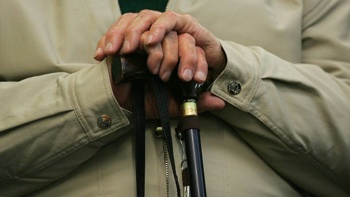Low numbers of early childhood teachers may be the reason the industry is so dangerous to work in.
A new report concluded over 40-percent of early childhood teachers reported a work related injury last year.
Child Forum chief executive Sarah Alexander told Mike Hosking higher stress from working in childhood education comes from a number of different things.
She says funding not increasing over the past few years, longer hours, and more pressure to be at work all contribute to the stress.
"A lot of the comments that came through relating to high levels of stress were to do with things like I've got this injury but I can't take leave because there's no one to replace me."
She says there are serious health and social ramifications to be considered from the findings.
"Health and safety risks to staff need to be better managed. Things such as excessive noise levels leading to hearing loss, staff not getting regular breaks and staff being overworked and unsupported should not be happening at any service.
"The cost, financially and emotionally to staff - the majority are women and many with young children of their own - of working in early childhood education, a profession that is also known for its low pay, can be significant.
"The sector is losing skilled teachers so something has to be done to look after staff better to keep these people in the sector," Dr Alexander said.
The ChildForum Early Childhood National Network researchers surveyed 900 teachers, including 109 in supervisor positions, as part of the 2017 Early Childhood Education Employment Survey.
In an earlier survey at the end of 2014, 29 per cent of teaching staff and supervisors reported a work-related injury, physical or mental health problem. Alexander believed one reason for the increase could be more publicity around the Health and Safety at Work Act 2015.
Cartilage damage and torn ligaments in their wrist due to a fall, extreme stress, sleeplessness, migraines, severe back problems costing thousands in treatments and using alcohol as a coping mechanism were some of the experiences quoted from surveyed staff.
Comments about mental health problems were made almost as often as comments about injuries and physical problems. One employee reported crying often at work and feeling both physically and mentally drained. Another said they felt less like a teacher and more like a cleaner/babysitter and one female teacher went into premature labour owing to stress.
Alexander suggested that it was time to put "the care" back into early childhood education. She wanted to see the sector invest in staff education around injury prevention.
"Caring for those who care for children has to become a priority.
"It can be really difficult for staff and add to the stress of trying to give a proper service to children when they are feeling undervalued, unsupported and unappreciated around health and safety at work."
The research recommended training from health and safety experts, reducing, removing or controlling hazards and giving staff equipment that will help prevent injury - for example steps for children so staff don't have to lift them on and off changing tables.
LISTEN TO SARAH ALEXANDER TALK WITH MIKE HOSKING ABOVE
Take your Radio, Podcasts and Music with you









